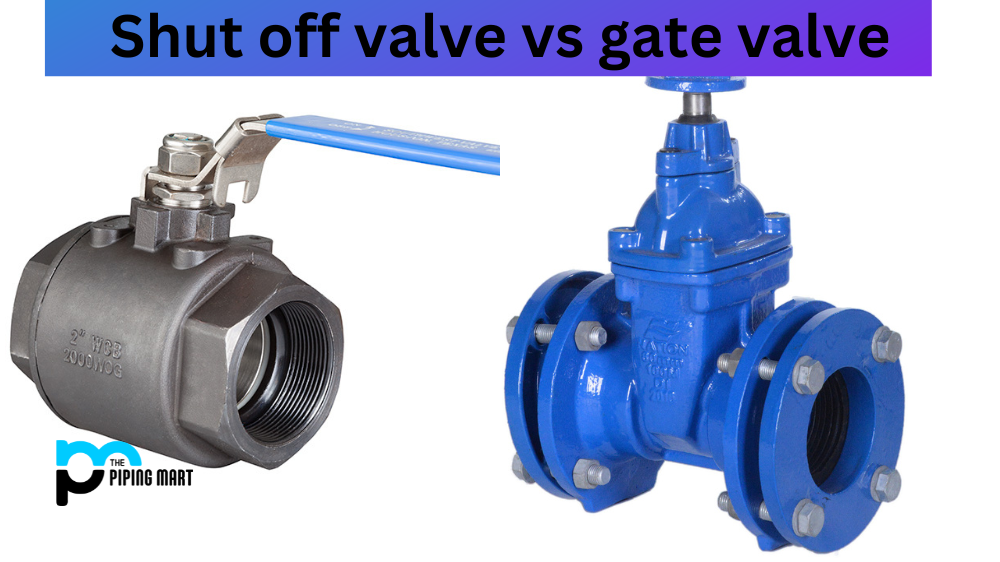Plumbing is an essential part of our homes and offices. Whether you remodel your kitchen or replace an old faucet, selecting the correct valve is crucial. Not all valves are the same; choosing what works best for your application is vital. This blog post will differentiate between shut-off and gate valves and help you choose the right one for your plumbing needs.
Shut Off Valve
Shut-off valves are commonly used in residential plumbing, whereas gate valves are primarily seen in commercial and industrial settings. Shut-off valves stop water flow in a straight line and are easy to operate. They have a small handle that you can turn to stop the water flow. Shut-off valves come in different materials, such as brass, chrome, and plastic, but the most common type is the quarter-turn ball valve. These valves are reliable and long lasting, making them a preferred choice among homeowners.
Gate Valves
gate valves work by lifting or lowering a gate to stop or allow water flow. They are primarily used in commercial and industrial plumbing because of their larger size and higher flow rate. Gate valves are known for their tight seal when closed, making them suitable for applications requiring complete shut-off. However, gate valves require more torque to turn, and their gate mechanism can become stuck over time.
Difference Between Shut Off Valve and Gate Valve
Uses
When selecting a valve, it is essential to consider your plumbing needs. Shut-off valves are perfect for smaller applications such as sinks, toilets, and appliances. Their simple design makes them easy to operate and repair, and they are also affordable. However, if you require a valve for a high-flow application, such as a fire suppression system or an irrigation system, a gate valve is the way to go. Their larger size and design allow for a higher flow rate and a tighter seal when closed.
Maintenance
Maintenance is another factor to consider when deciding between shut-off and gate valves. Shut-off valves are easy to maintain and repair since they have fewer parts. If a shut-off valve leaks or needs repair, you can easily remove the handle and replace the ball or stem. Gate valves, on the other hand, have a complex design with more parts, making them harder to maintain and repair. If a gate valve requires repair or replacement, you may need to hire a professional plumber.
Other Differences
- A shut-off valve is a valve that completely stops the flow of water or other fluid through a pipe.
- A gate valve is a valve that controls the flow of water or other fluid through a pipe by opening and closing a gate.
- Shut-off valves are typically used to stop water flow to a particular area, such as a sink or toilet.
- Gate valves are typically used to control water flow through a pipe, such as when opening or closing a water main.
- Shut-off valves are usually located at the end of a pipe, while gate valves are usually in the middle.
- Shut-off valves are operated by turning a handle to the right to close the valve and to the left to open the valve.
- Gate valves are operated by turning a handle to the right to open the valve and to the left to close the valve.
- Shut-off valves are typically brass, bronze, or plastic, while gate valves are cast iron, ductile iron, or steel.
Conclusion
In conclusion, selecting the correct valve for your plumbing needs should be manageable. Understanding the differences between shut-off and gate valves will help you make an informed decision. Shut-off valves are suitable for smaller applications and offer easy operation and maintenance. Gate valves are perfect for high-flow applications and provide a tight seal when closed. Whichever valve you choose, consider your plumbing needs, maintenance requirements, and budget. You can ensure your plumbing system runs efficiently and smoothly with the correct valve.




